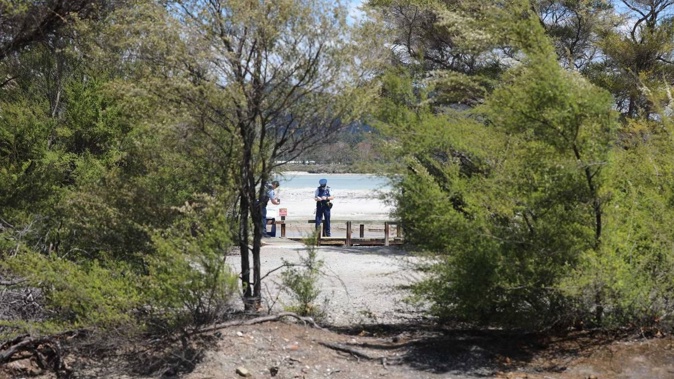
A Rotorua man who died of accidental hydrogen sulphide poisoning in 2020 at Sulphur Point had been visiting the hot pool daily for months before his death, the coroner has found.
The coroner ruled that signs around Sulphur Point failed to give adequate warning of danger in an area freely accessible to tourists and the public.
In a decision made in November and obtained by the Rotorua Daily Post this week, the coroner ruled that James Whare Taikato died on November 19, 2020, at Cameron’s Laughing Gas Pool, Hatupatu Drive, Sulphur Point, Rotorua, as a result of hydrogen sulphide poisoning.
Coroner Louella Dunn’s decision stated the circumstances of Taikato’s death were accidental.
/cloudfront-ap-southeast-2.images.arcpublishing.com/nzme/KUUIRRPVV5G35AZTCHRMC7BVFQ.jpg)
James Whare Taikato, 51, was found dead at Sulphur Point on November 19, 2020. Photo / Alan Gibson
Taikato, 51, who was unemployed and living alone in Rotorua, had been visiting the Sulphur Point hot pool daily for months before his death.
On November 19, 2020, Taikato was seen leaving his property at 8am. After that, police were unable to establish his movements.
About 2pm, a member of the public was walking past Cameron’s Laughing Gas Pool, on the corner of Hatupatu Drive and Queens Drive. He saw the back of a person’s head and shoulders floating in the pool and contacted emergency services.
Police found Taikato unresponsive and floating face down in a shallow part of the pool. His body was recovered with the assistance of the Fire Rescue Service.
A pathologist’s autopsy found various medications and cannabis in Taikato’s system.
While these substances may have slowed his reactions, the cause of death was ruled as hydrogen sulphide poisoning, not drowning.
/cloudfront-ap-southeast-2.images.arcpublishing.com/nzme/ENUJSTMKQJFBZMCS6TI7M2L6LM.jpg)
Coroner Louella Dunn said signs posted near Sulphur Point failed to adequately warn of the potential dangers of hydrogen sulphide inhalation. Photo / NZME
In her decision, coroner Dunn said there were two signs posted near the scene of Taikato’s death and neither of them, “either separately or together”, adequately warned the public of the potential dangers.
“A sign posted on the boardwalk in front of the hot pool at the time advised that hydrogen sulphide and carbon dioxide can cause fainting,” Dunn said.
“However, the sign was lengthy and predominantly aimed at providing a light-hearted history of the pool.”
Dunn described the signs in front of the hot pool area as “vague and unhelpful”.
Dun recommended additional signage should include the danger of bathing alone and that high levels of hydrogen sulphide inhalation can cause fatigue, dizziness, delirium, nausea, loss of consciousness and death.
“It is difficult to know whether [Taikato] was aware of the dangers or whether additional signage would have deterred him,” Dunn said in her decision.
“However, there have previously been deaths in Rotorua caused by members of the public bathing in the hot pools and dying from hydrogen sulphide poisoning.
“It is hoped that this recommendation will make the public aware of the possible dangers of bathing in hot pools.”
Dunn said a copy of the draft of her finding was provided to the Rotorua Lakes Council, and that council sport, recreation and environment manager Rob Pitkethley had responded.
“Mr Pitkethley advises that following the receipt of my draft finding, a further and modified sign has been erected to expand on the effects of hydrogen sulphide poisoning,” Dunn said.
“The new signage is to be erected to key entry points to the geothermal areas and along the walking areas in front of the hot pools as a priority.”
Dunn said she was grateful to the Rotorua Lakes Council for its prompt and helpful response to the recommendations.
Take your Radio, Podcasts and Music with you









